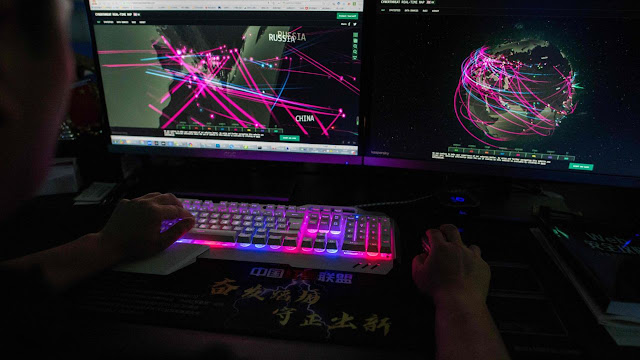Chinese programmers looking to disturb correspondences among US and Asia in occasion of emergency, Microsoft says
In recent years, the world has witnessed a surge in cyberattacks and hacking attempts, often attributed to state-sponsored actors. One such threat comes from Chinese programmers who, according to Microsoft, are actively seeking to disrupt communications between the United States and Asian countries, especially during times of emergency. This article aims to delve into this concerning issue, shed light on the activities of Chinese hackers, explore Microsoft's report on their actions, discuss the potential impact on communications, and suggest measures to counteract this threat.
Background of Chinese Programmers' Activities
Chinese hackers have been involved in numerous cyber incidents in the past. These incidents have targeted various sectors, including government agencies, technology companies, and critical infrastructure. The motivations behind these actions can range from gaining economic advantages to espionage and geopolitical influence. The activities of Chinese programmers have become a significant concern for cybersecurity experts and nations alike.
Microsoft's Report on Chinese Programmers
In a recent report, Microsoft has provided detailed insights into the activities of Chinese programmers targeting the communications infrastructure between the United States and Asian countries. The report highlights the methods employed by these hackers, their objectives, and the potential risks associated with their actions. Microsoft's findings underscore the need for heightened vigilance and robust cybersecurity measures to protect against such threats.
Impact on US and Asian Communications
Disrupting communications between the United States and Asian countries during times of emergency can have far-reaching consequences. Communication networks play a vital role in coordinating emergency response efforts, sharing critical information, and ensuring the safety and well-being of individuals. The activities of Chinese programmers, if successful, could hamper these essential communications, leading to delays in response times, misinformation, and potentially compromising the security of nations.
Measures to Counteract the Threat
Addressing the threat posed by Chinese hackers requires a multi-faceted approach. Firstly, it is crucial to enhance cybersecurity measures across all sectors, including government agencies, businesses, and individuals. This involves implementing robust firewalls, regular security audits, and staying updated with the latest security patches and protocols. Additionally, fostering international cooperation and information sharing among nations is vital to effectively combatting cyber threats. By working together, countries can pool their resources, intelligence, and expertise to identify and neutralize potential threats.
Conclusion
The activities of Chinese programmers aiming to disrupt communications between the United States and Asian countries in times of emergency highlight the pressing need for comprehensive cybersecurity measures. It is imperative that nations invest in bolstering their defense against cyber threats, develop robust response mechanisms, and foster international collaboration to counteract these challenges effectively. By staying vigilant and proactive, we can mitigate the risks associated with such malicious activities and ensure the integrity and security of our global communications infrastructure.





No comments: